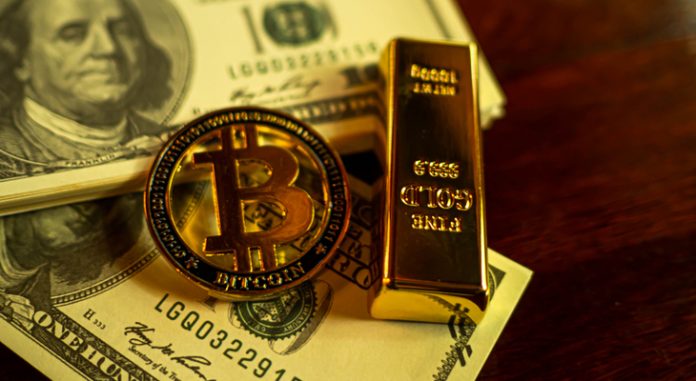For quite a while now, various traders and financial experts have been fearlessly debating the relative pros and cons of investing in either gold, the ultra tangible precious metal asset, or Bitcoin, the new high-tech intangible asset based on a decentralized blockchain.
A brand-new report on the Middle Kingdom’s finance sector shows us how companies invested in gold can end up having feet of clay – to put it mildly.
Specifically, the Wuhan Ringold Jewelry company has just been exposed as an enormous fraud, having duped investors to the tune of $2.8 billion by wrapping up 83 tons of gilded copper and calling it gold.
This gold was duly collateralized and held for years until, reportedly, people at Dongguan Trust decided to liquidate the collateral.
What they found was a shocking surprise.
“The massive scam came to light in February,” writes Georgie Georgiev at Cryptopotato today, looking back at a scandal without equal. “Supposedly, Kingold took the loans against gold in order to increase its cash holdings and to support business operations. What’s shocking in this case is that insurance companies agreed to cover it, and nobody checked the authenticity of the gold for years.”
Furthermore, U.S. Securities and Exchange Commission documents show that regulators spilled buckets of digital ink fixing all the tiny details of these gold collateral agreements, without ever once checking to make sure that all of the gold was really gold. For example:
SEC doc: “Gold Pledge Agreement between China Minsheng Trust Co., Ltd. and Wuhan Kingold Jewelry Co., Ltd. signed by Party A and Pledgor [2019-MSJH-129-3] and any amendments or supplements.”
Parties all correctly named? Check.
“The balance pledge rate calculated under Gold Pledge Agreement Pledged is not higher than 70%, the above mentioned pledge procedure has been processed, the pledge gold has been secured in the safe of China Industry and Commerce Bank Hubei Branch Wuhan Shuiguohu site, the property insurance of the pledge gold with Party A as the first beneficiary has been bought (mainly theft and robbery insurance, insurance term is not shorter than the last loan maturity date, and the insurance company should specify in the special agreement list of the insurance slip that it bears insurance responsibility of the quality and weight of the pledge gold)…”
Yep, that all checks out. This goes on forever. Maybe check the actual collateral, though…?
It’s a Keystone Kops tale that Federal Reserve haters and other finance cynics will love, but it also illustrates the selling points of Bitcoin as a cryptocurrency.
“(People say that) Bitcoin does fix this, and they’re nothing but right,” writes Georgiev. “One of the most essential inherent qualities of Bitcoin is that it can’t be counterfeited. Not until the network is functioning properly, of course. To validate transactions and prevent double-spending, miners go through previous transactions associated with the sender’s address, to verify that he did, in fact, own the spent Bitcoins and hadn’t spent them before that. And since the only way to counterfeit Bitcoins is to essentially spend them in more than one place, that’s how the network handles the problem.”
As with any asset, Bitcoin is not immune to some fraud potential – but on the plus side, you can’t wrap it in gold foil and call it gold.










